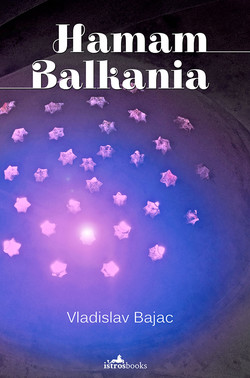Читать книгу Hamam Balkania - Vladislav Bajac - Страница 14
На сайте Литреса книга снята с продажи.
ОглавлениеThey stopped in Jedrene, or Edirne in Turkish, the famous imperial winter residence and former capital city.
After a rest, the caravan with its large number of children continued on toward the interior of the country. Bajica, along with a small group of a hundred or so, was detained at Edirne. The beauty of the place and the sheer luxury of the exterior of the caravansary occupied their attention and their thoughts. They almost forgot all the difficulties and the length of the journey they had just made. Before them lay their first life challenge, which they could not be aware of, nor could they clearly place it for themselves; they were merely comparing where they came from to where they had arrived, and as of yet they still had not even had the chance to see the second courtyard, much the less the third courtyard inside the caravansary.
Their senses were already overwhelmed, and no one had even offered them anything.
They were sent to the soldiers’ barracks, which lay next to the room belonging to the Sultan’s guard. A few guards were assigned to them – keepers who spoke Serbian, but who addressed them in it only insofar as their service demanded: they were not allowed to say anything privately, much less to offer any sort of explanation. Each of the future courtiers was supposed to understand by himself however much he was able to.
In the census books, in addition to the existing facts brought from Bosnia and Serbia, their new Turkish names were entered. Bajo Sokolović became Mehmed Sokollu. They were ordered to respond only to their new names from then on. They began learning Turkish immediately. Their lessons were based on the gradual learning of the basics of communication, but they also included concepts that they had to learn by rote, with the explanation that these things would be clarified later, when they began to study the Qur’an. Their language classes went on all day, interrupted only by physical exercise and scanty meals. Before falling asleep, Baja still called himself Bajica, but this would not last long: completely exhausted like all the others, he would go to sleep instantly.
The first months went by like a whirlwind. As soon as they had mastered their new language enough to communicate without difficulty (while in the presence of their teachers and supervisors, they also had to speak it among themselves), they began to read and write intensively. And even though it existed from early on, a clearly visible selection was now conceived: those who proved to be among the best were chosen to study various fields of scholarship and to enter them quickly, broadly and profoundly. Then they were immediately tested on the things they had learned and sorted into groups according to ability. One thing was common and clear to all of them; that their training was subjugated to the one and the same goal – that they were all to serve one master and him alone. Within that framework they were fit into various positions, but those were only nuances in relation to the unifying submissiveness and to the resulting blind and united fealty.
The Imam of Edirne converted them to Islam in a ritual, a humble and highly simplified ceremony. They were also circumcised. Only then were they able to attain true religious and spiritual knowledge, along with vigorous and varied military training. Before long the breadth and length of their combat exercises was completely matched by the time spent in lectures on Islam, in the study of the Holy Qur’an and in their community prayers. Bajica felt like they were making a super-man of him, capable and competent for all sorts of exploits of the body, mind and soul. He did not waste his strength on resistance; it was clear to him that through opposition he would not manage to ward off the inevitable. In that way, he at least had the comfort (or the illusion) that he was participating in the decision making process of his acceptance, without knowing if it was it forced or voluntary?
It was as if he was thinking in Turkish, but dreaming Serbian. Thus translating himself from one language into the other and vice-versa, it seemed that he was preparing his very essence to be the eternal guardian of the boundary between dreams and reality. Maintaining his balance on such a sharp edge, as time went by, it began to remind him of the skill of the tightrope walker at the bazaar. As the height increased, the danger of the fall grew as well, and of its consequences, but the profit from his possible success also rose. Actually these contradictions were the essence of his present, and also future – and therefore entire – life, were they not? The choice was completely limited: he could allow the mainstream to carry him, or he could attempt to step out of it while yet knowing that there was no salvation in it; giving up would not send him home. He would only be forced into the worst possible life conditions as a common slave, all opportunities for change removed, much less for advancement or success. By obeying others’ decisions about his life, he ensured for himself some kind of possibility that, somewhere in the future he would take over responsibility for decisions about that same life. His life.
